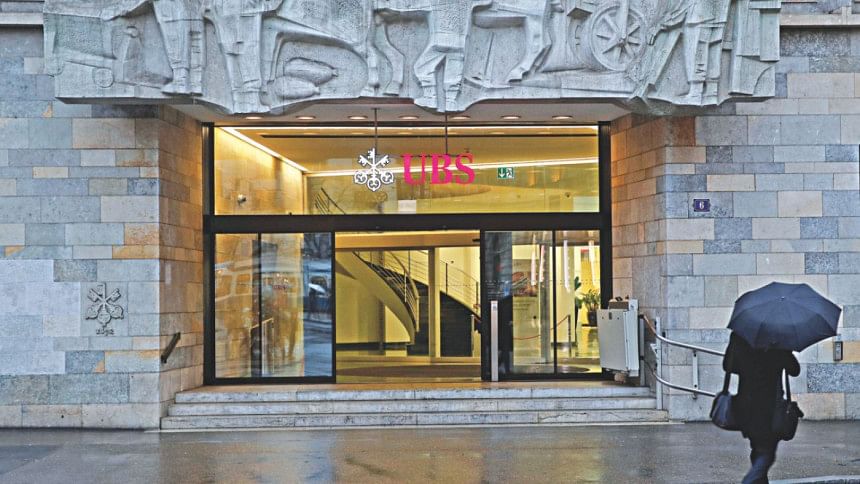Bangladeshi Nationals, Banks: ‘Swiss banks not so lucrative now to park money’

Bangladeshi nationals and banks kept 17.71 million Swiss francs (CHF) in deposits last year in the banks of Switzerland, the lowest on record, reflecting the fading attractiveness of the country among the wealthy to park money.
This was a 68 percent decrease from the 55.2 million CHF Bangladeshi citizens and banks deposited in 2022, according to figures released yesterday by the Swiss National Bank (SNB), the central bank of the western European nation.
This is the second year in a row that deposits kept by Bangladeshis fell in Swiss banks. However, it does not mean that illicit outflows of capital from the country have come to an end, said two analysts.
"Of course, illegal money siphoning out of the country has increased, and it is taking place. But Swiss banks are not a favourite destination anymore. It is not a place to keep the identity secret anymore," said Ahsan H Mansur, executive director at the Policy Research Institute of Bangladesh, a local think-tank.
"Now, Dubai and Singapore are the new havens. Money is laundered and is invested in real estate and businesses in the US and England too."
At a programme in Dhaka yesterday, Shamsul Alam, a former state minister for planning, said $7 billion to $8 billion are laundered from Bangladesh every year.
Swiss banks began to lose their lustre nearly a decade ago after tax probes by the US, France and Germany and a new system of bank-data exchange between governments has scuppered the traditional "no-questions asked" approach by Swiss banks to serving rich clients living abroad, Bloomberg reported in 2016.
The development of the Common Reporting Standards (CRS) in 2014 by the Organisation for Economic Co-operation and Development (OECD) also brought about a major shift in global tax transparency.
This is because by signing up, countries agree to automatically exchange financial account information. As a result, it has become harder for individuals to conceal their wealth offshore without the rest of the world knowing about it. Before this, countries generally had to request this information from other nations.
Data from the Swiss National Bank showed that Bangladeshi nationals saved 13.96 million CHF in Swiss banks in 2023, the lowest since 1997. The amount was 78 percent of the total deposits of 17.71 million CHF, or $19.86 million.
The deposits were Tk 233 crore in Bangladeshi currency. In the case of Bangladeshi nationals, the deposits amounted to Tk 184 crore.
Iftekharuzzaman, executive director of the Transparency International Bangladesh, said Switzerland is one of the many destinations for illicit fund transfers.
Switzerland is a conventional destination, but since it joined the global efforts against money laundering and corruption, it has lost its shine, he added.
"Many destinations for illegal money transfers have sprouted, and they are more attractive," he said, citing the names of Malaysia, Singapore, and the Middle Eastern countries.
Plus, there are offshore destinations to park money, he said.
"One can buy properties in the UK, the US, Canada, and the Southeast Asian and Middle Eastern countries. This is not easy in the case of Switzerland," added Iftekharuzzaman.
"So, the falling deposits in the Swiss banks belonging to Bangladeshi citizens and banks do not provide any relief that illegal capital flight has declined."
In 2022, the Tax Justice Network's Financial Secrecy Index, the UK-based organisation, named the US as the top destination for stashing money illegally. The country overtook traditional tax havens Singapore, Switzerland, Luxembourg, the Bahamas, and the Cayman Islands.
Mansur, a former economist at the International Monetary Fund, said Switzerland had once kept the information of depositors confidential. "Now it is not maintaining the secrecy. It provides information if any government seeks."
Bangladeshis living in Switzerland may hold a portion of the deposits. A part of the foreign currency reserves of Bangladesh are also kept there, he added.


 For all latest news, follow The Daily Star's Google News channel.
For all latest news, follow The Daily Star's Google News channel. 



Comments